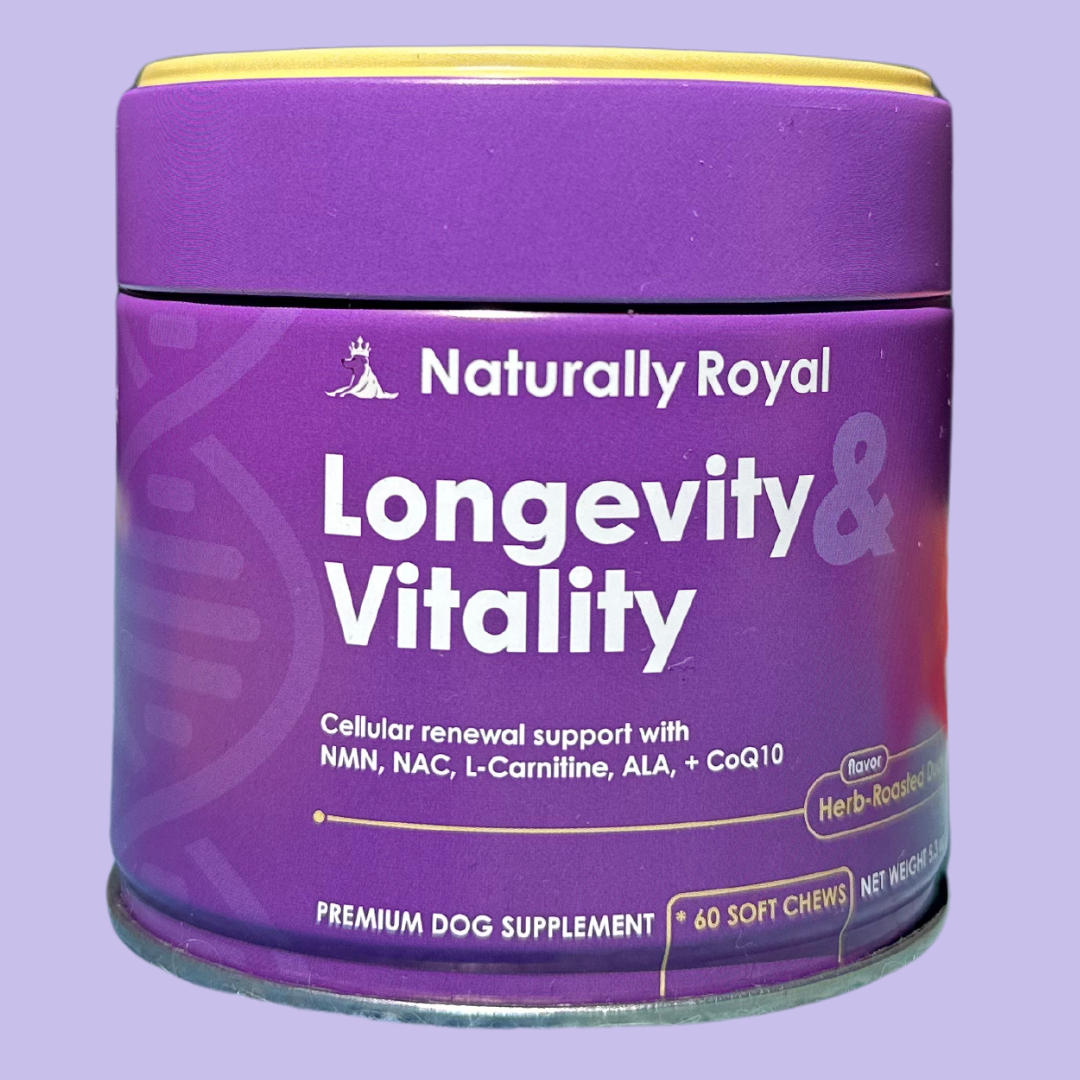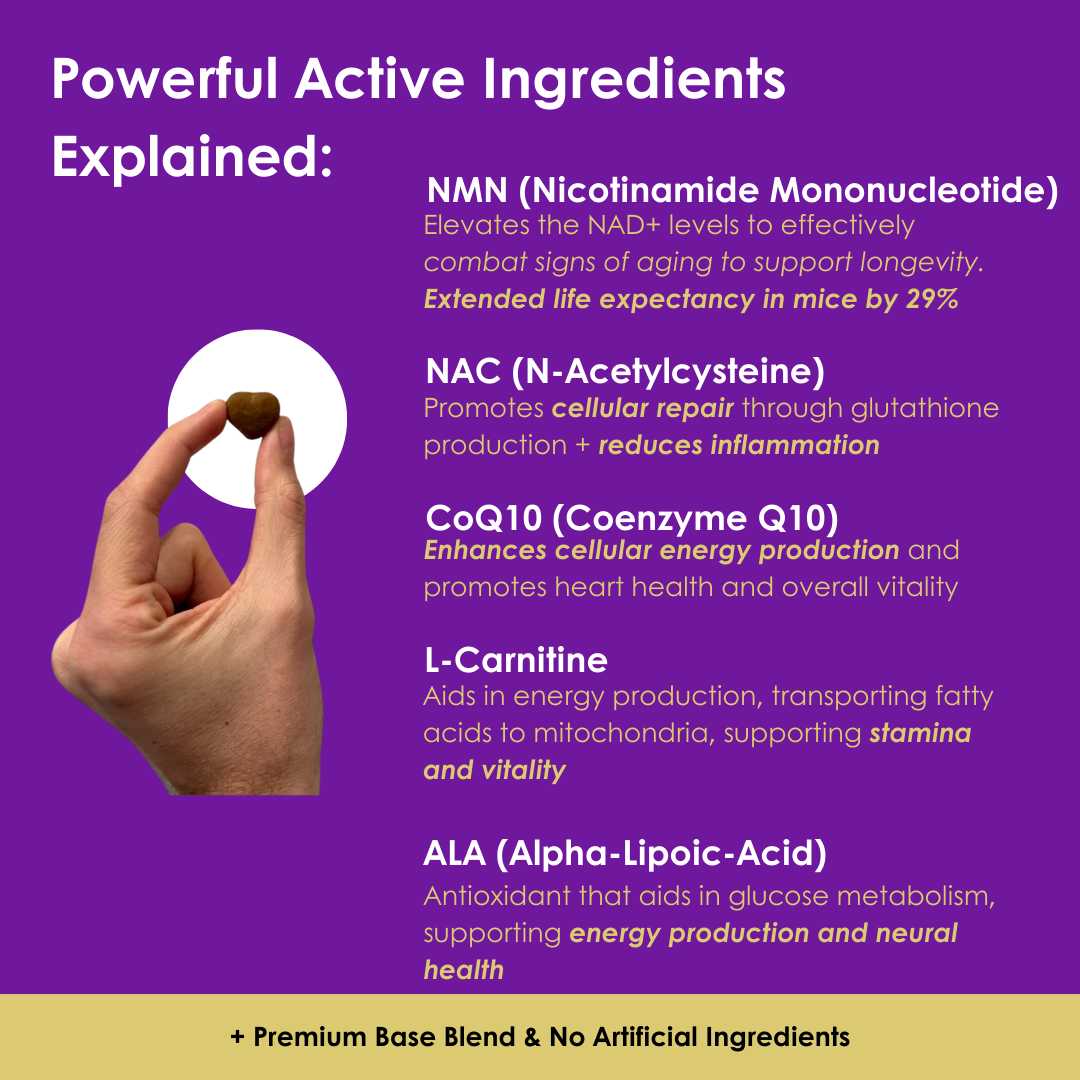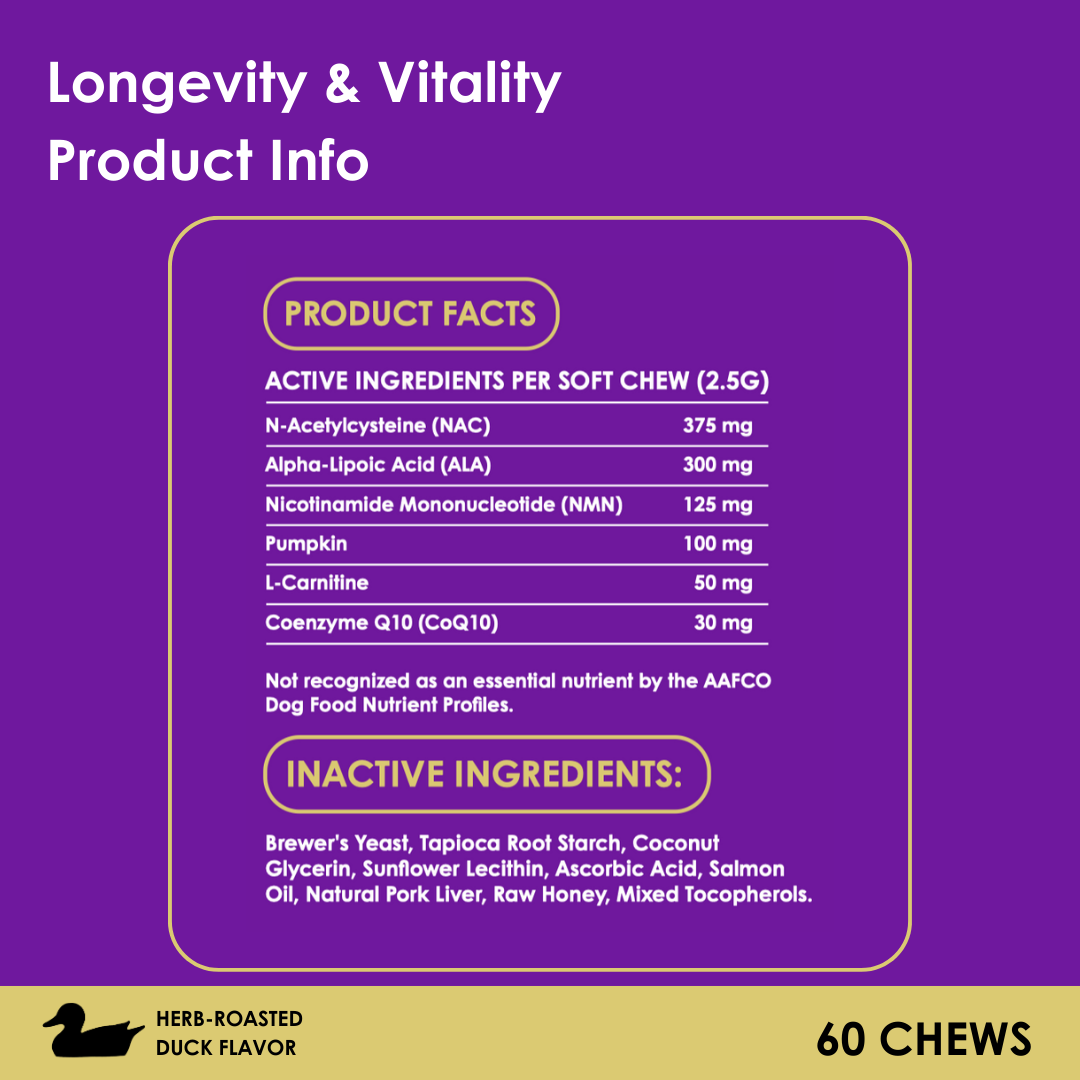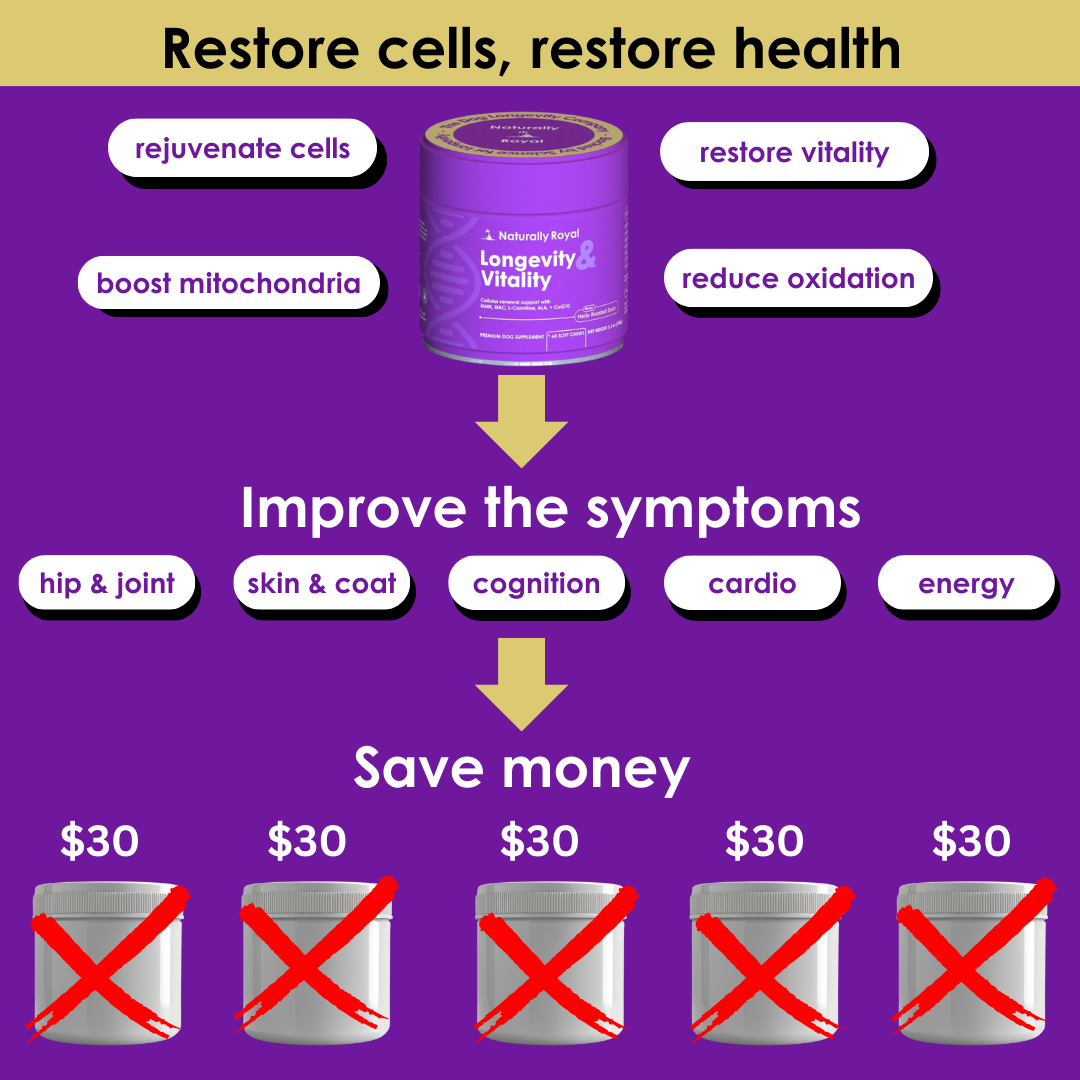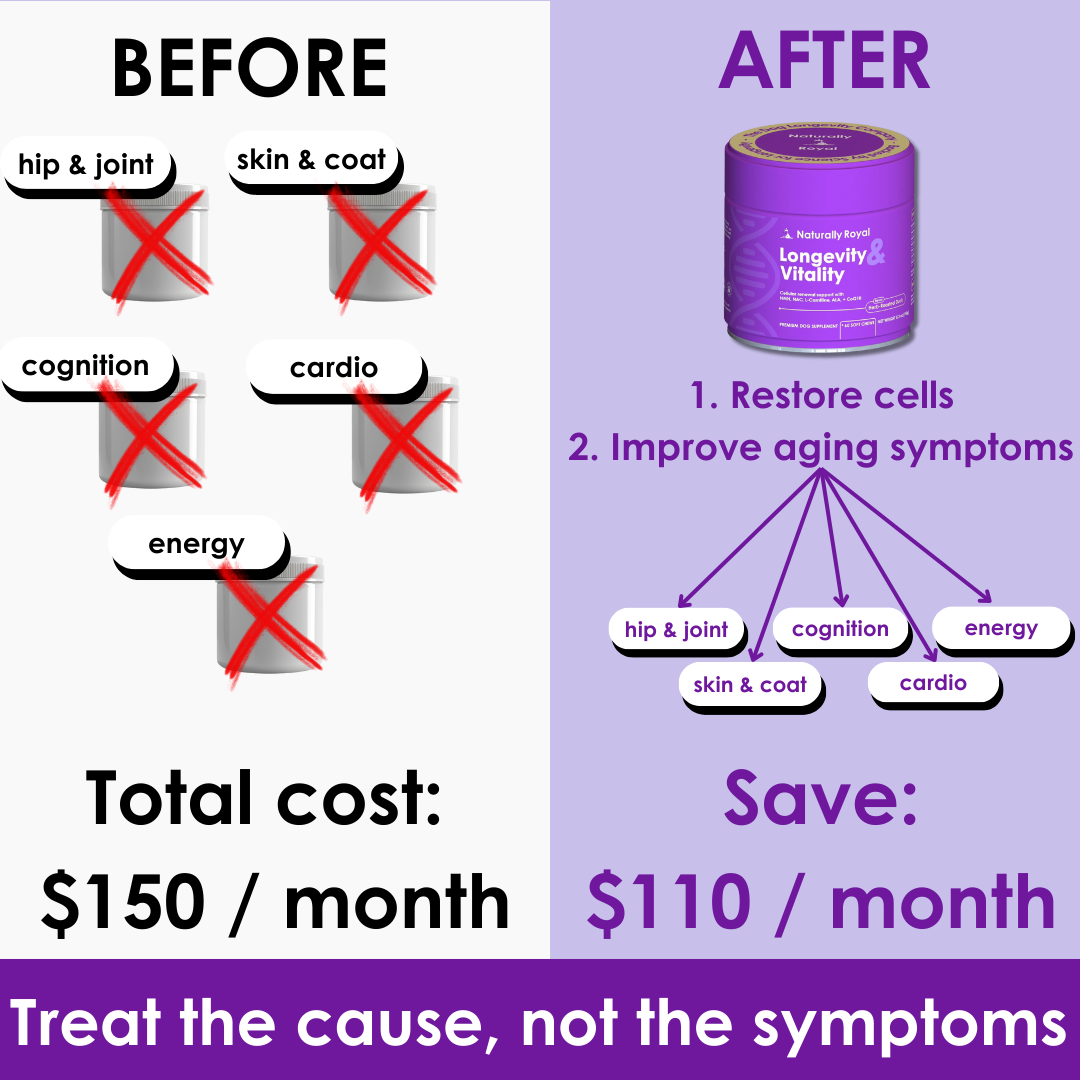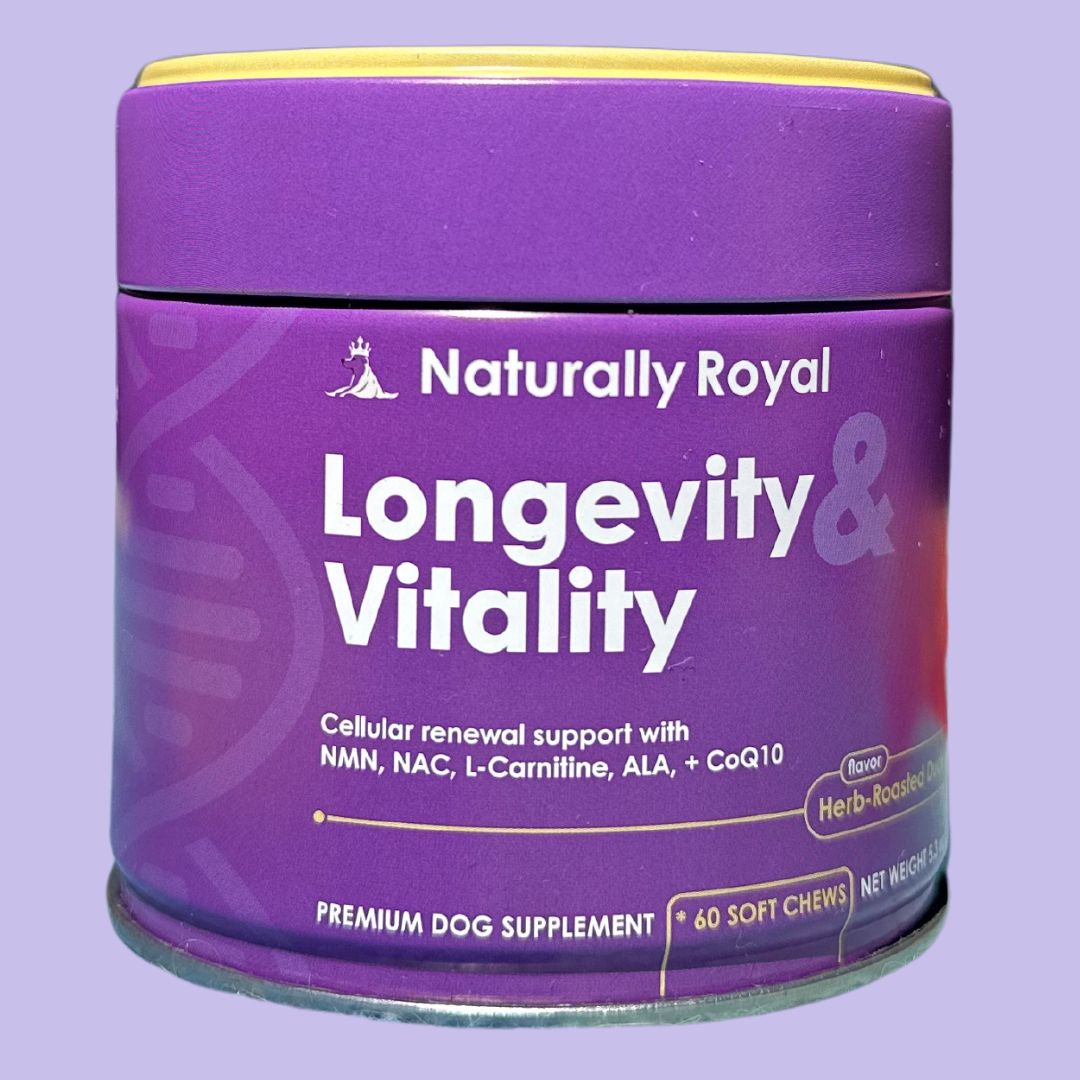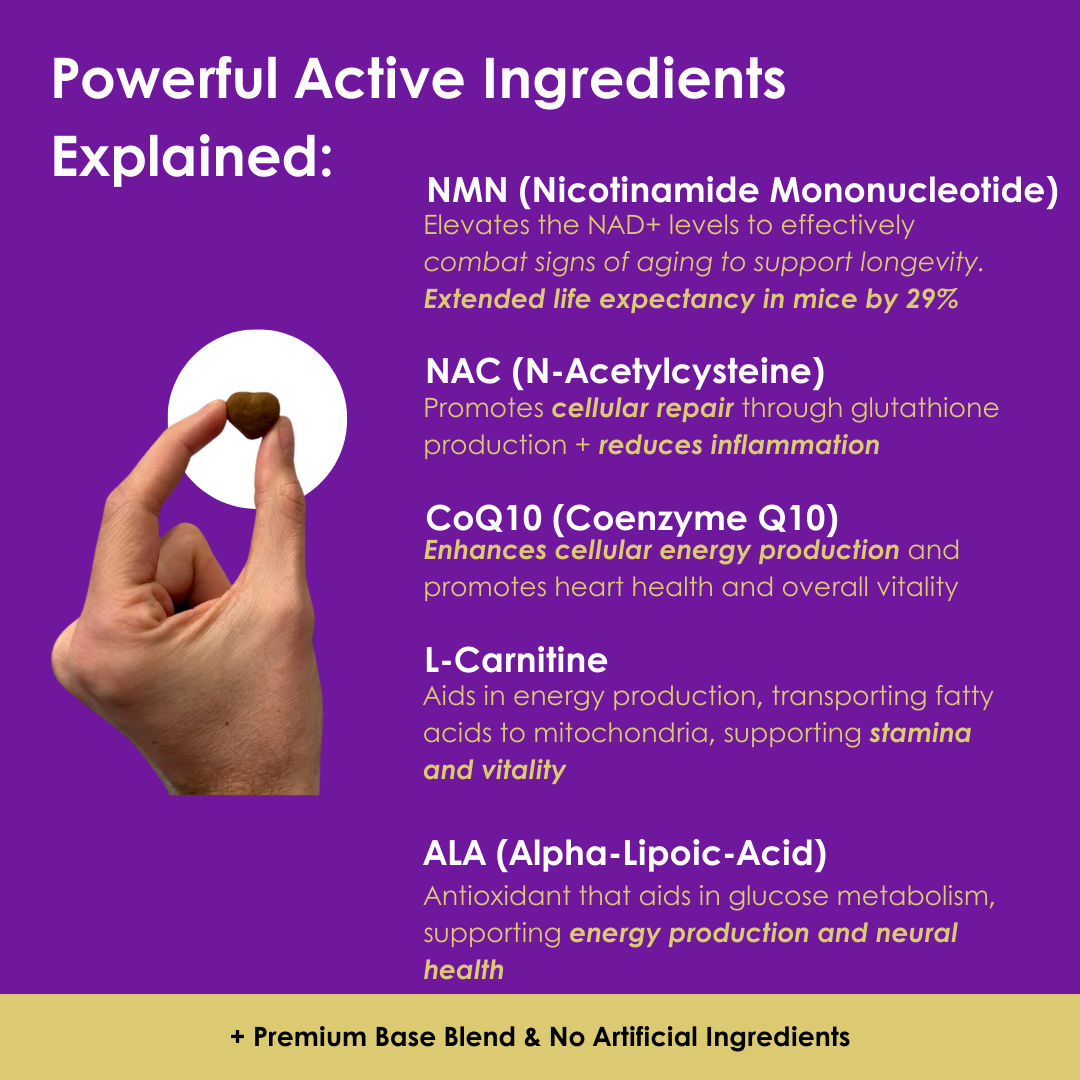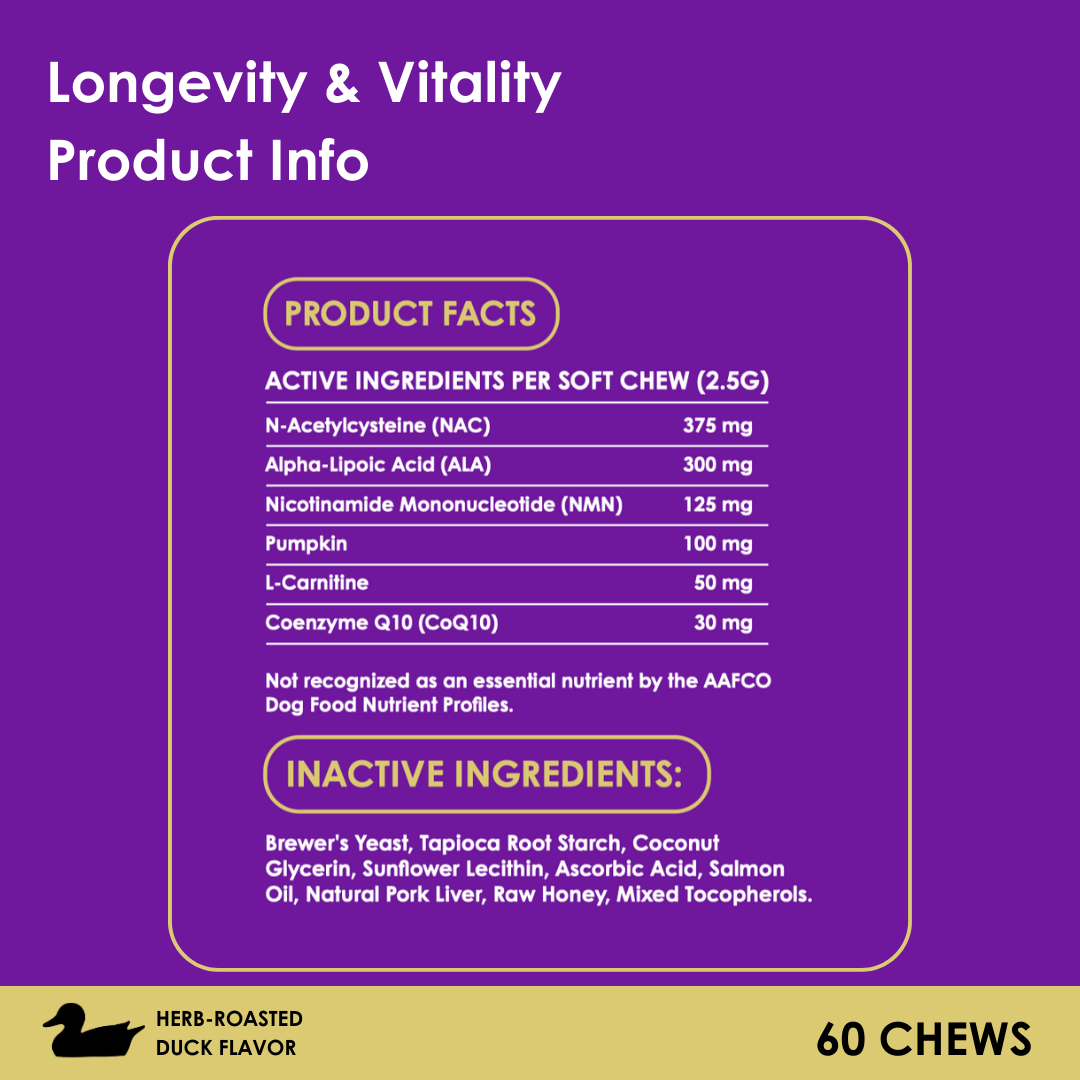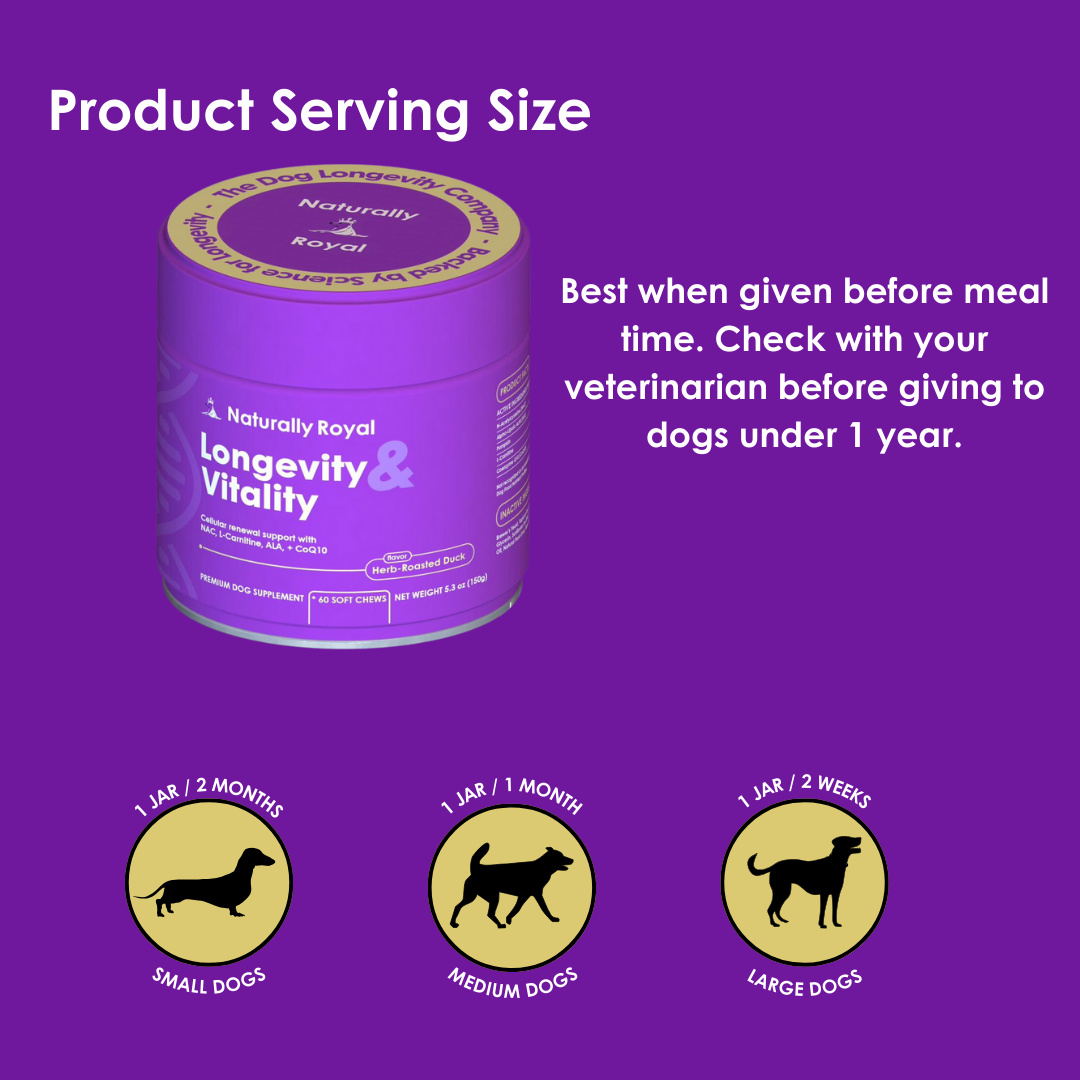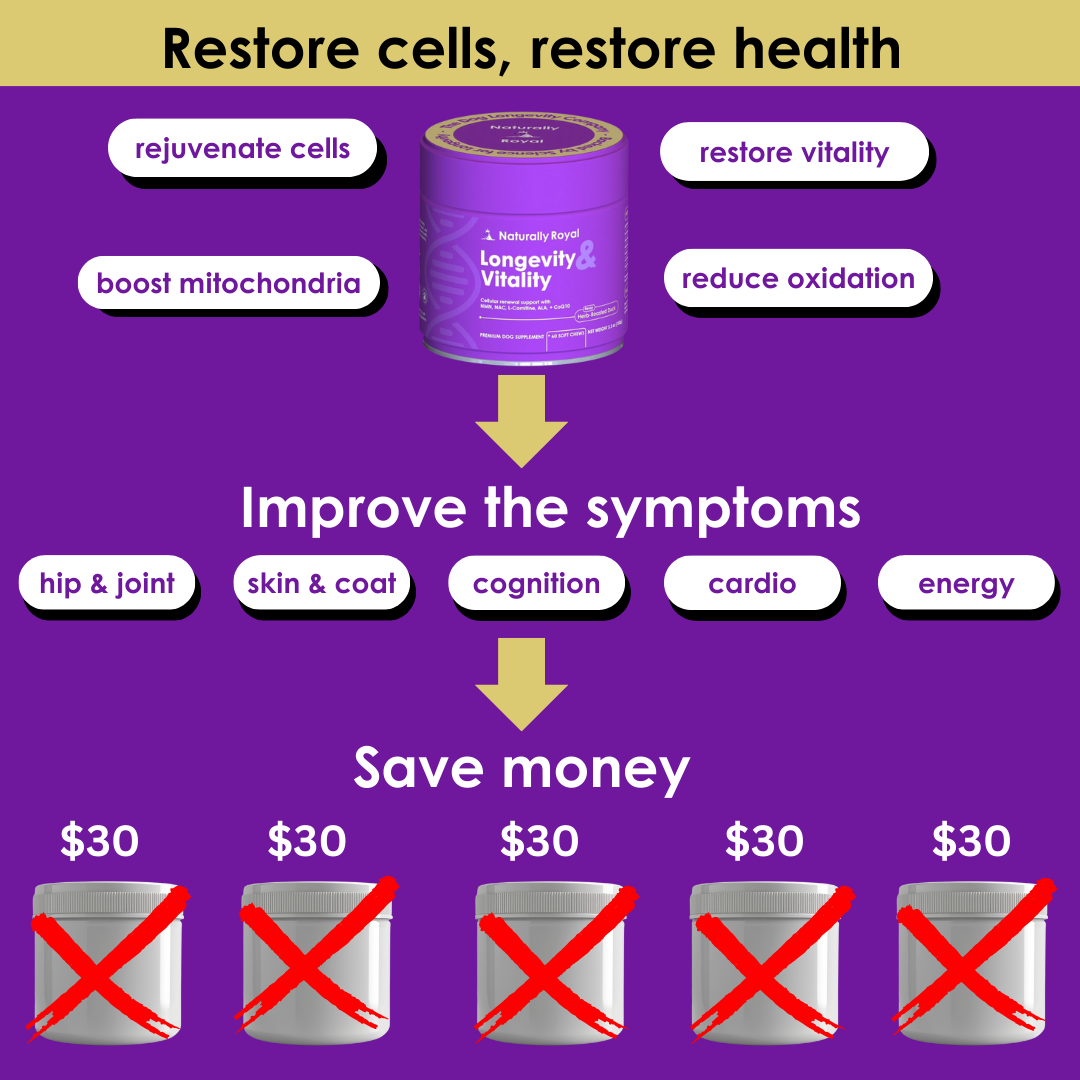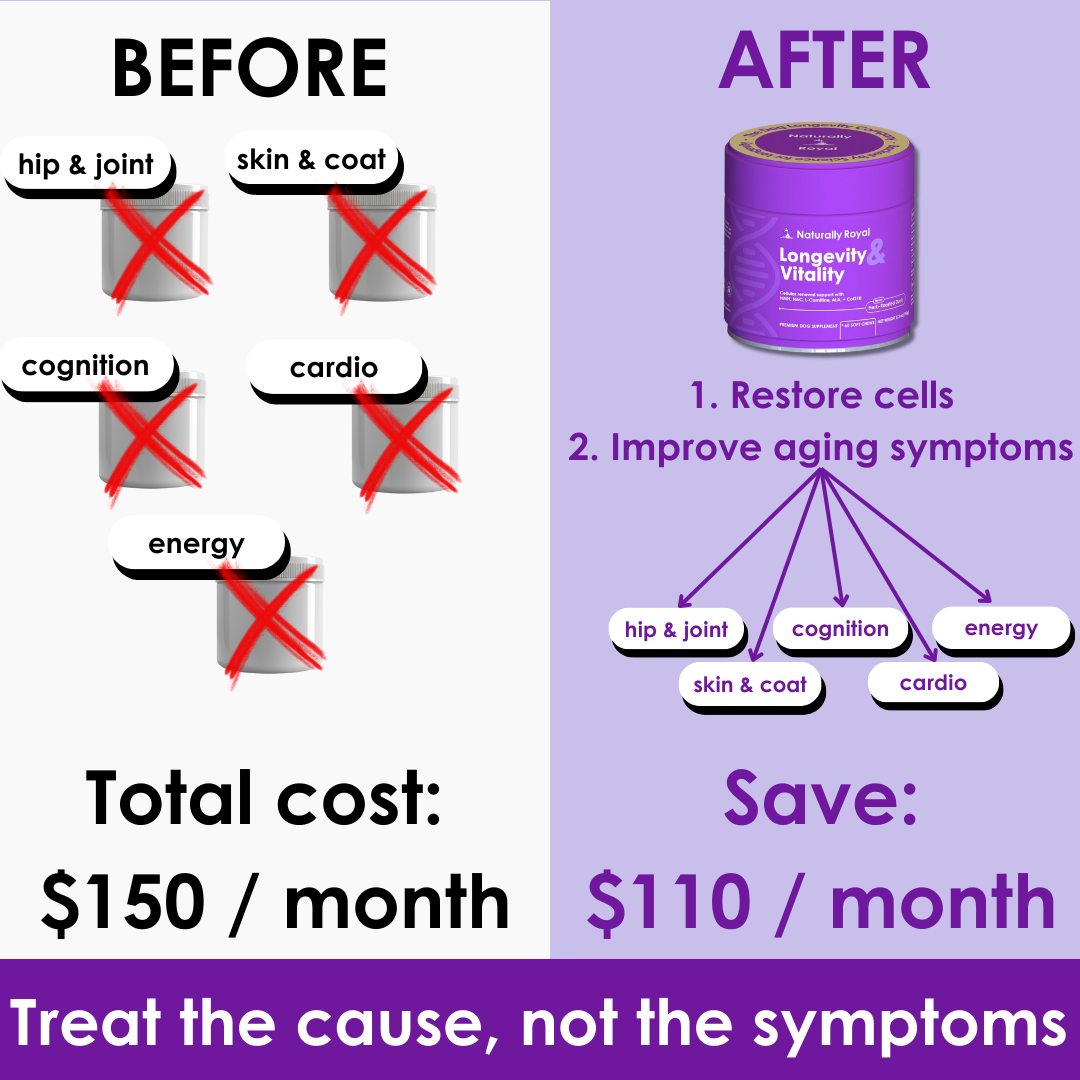What is Food Therapy? A Holistic Approach to Your Dog’s Longevity
As dog parents, we always seek the best ways to care for our best friends, especially when it comes to their health and longevity. In recent years, holistic approaches to pet care, such as food therapy, have gained popularity for their potential to improve our pets’ well-being in ways traditional methods may not fully address. Food therapy, in particular, focuses on using specific whole foods to treat chronic conditions and maintain health, promoting a longer, healthier life for our dogs. Let's go over it and the implications for our dog's longevity:
Understanding Food Therapy in Traditional Chinese Veterinary Medicine (TCVM)
Food therapy is one of the core branches of Traditional Chinese Veterinary Medicine (TCVM), alongside acupuncture, herbal therapy, and Tui Na (a type of therapeutic massage). According to TCVM, food is not just fuel but a form of medicine that can influence the body’s internal balance and overall health. TCVM practitioners believe that each food has its own energetic properties that can affect the body's condition, making food therapy a highly individualized treatment.
Dr. Susan Bohrer, DVM, CVA, CVFT, an integrative small animal practitioner, recently highlighted the importance of food therapy at the 2024 Fetch dvm360 conference. Dr. Bohrer shared how food therapy helped improve the health of pets with chronic conditions like pancreatitis, liver disease, and irritable bowel syndrome, as well as those struggling with obesity and skin conditions. The foundation of food therapy lies in the belief that what works for one pet may not work for another—each dog’s unique health needs must be addressed through personalized dietary changes.
How Food Therapy Works: The Basics of Energetics in Food
At the core of food therapy is the concept of energetics—how a food’s natural properties affect the body’s internal environment. TCVM classifies foods into different categories based on their energetic effects: warming, cooling, and neutral. Each type of food has a different impact on the body, which is critical when considering the overall health of a dog.
For example:
- Warming Foods: Foods like chicken, lamb, venison, oats, and winter vegetables are considered gentle on the digestive system. These foods are recommended for dogs experiencing coldness or low energy. They are especially helpful for older dogs or those with a slower metabolism.
- Cooling Foods: Turkey, duck, rabbit, barley, brown rice, and summer vegetables are anti-inflammatory and beneficial for dogs showing signs of excess heat. This might include conditions like skin allergies or chronic inflammation.
- Neutral Foods: Foods such as beef, pork, salmon, eggs, potatoes, and carrots are hydrating and balancing, making them suitable for maintaining a healthy equilibrium in dogs that aren’t experiencing significant health issues.
By carefully selecting the appropriate food based on your dog’s needs, you can create a diet that promotes healing and supports longevity.
Raw vs. Cooked: Which is Better for Your Dog?
One of the key considerations in food therapy is whether to feed your dog raw or cooked foods. While raw diets are trendy, Dr. Bohrer emphasized that raw food isn’t always the best choice for every dog. According to her, raw food works well for healthy, strong dogs because it requires more energy (or Qi) to digest. However, senior dogs, puppies, or those with sensitive stomachs may struggle with raw food and benefit more from cooked diets.
Cooked food is easier on the digestive system, helps strengthen the spleen, and supports the gastrointestinal microbiome. As a dog ages, their digestive capacity may decrease, requiring a switch from raw to cooked food to better support their overall health. Dr. Bohrer used the example of a dog that thrives on raw food for years, only to develop gastrointestinal issues later in life. The transition to cooked food can restore balance and health, helping the dog live more comfortably in its senior years.
Food Therapy for Chronic Conditions: A Natural Approach to Healing
Food therapy has proven particularly effective for dogs suffering from chronic conditions. Many dogs with pancreatitis, liver disease, irritable bowel syndrome, and obesity have seen significant improvements through diet changes alone. Chronic conditions often require long-term management, and traditional medications can sometimes have adverse effects or fail to fully address the root of the problem. By using food therapy, pet owners can support their dog’s health from the inside out, offering relief from symptoms and promoting a better quality of life.
Dogs with gastrointestinal issues, for example, may benefit from simple, gentle meals such as chicken and rice, which are easy on the stomach. On the other hand, dogs with chronic inflammation or skin allergies may thrive on a cooling diet rich in anti-inflammatory foods like turkey and barley.
As a holistic approach, food therapy also encourages the use of fresh, whole foods over processed alternatives. This shift not only helps manage specific health concerns but also reduces the risk of developing additional problems associated with poor nutrition. By focusing on quality ingredients and balanced meals, you can give your dog the best chance at a long, healthy life.
Adjusting Your Dog’s Diet as They Age
One of the key aspects of food therapy is its adaptability. As dogs age, their dietary needs change, and what worked for them in their younger years may no longer be appropriate. Older dogs may struggle with foods they once loved, or they may develop new health conditions that require dietary adjustments.
Food therapy recognizes the importance of adjusting diets based on a dog’s life stage, health status, and changing needs. Whether your dog is dealing with new sensitivities, weight loss, or digestive issues, food therapy offers flexible solutions that can evolve alongside your dog’s health journey. This personalized approach ensures that your dog receives the most appropriate nutrition for their current condition, supporting both their short-term comfort and long-term longevity.
Longevity and the Impact of Food Therapy
The benefits of food therapy extend far beyond immediate symptom relief. By providing dogs with diets tailored to their unique needs, food therapy can play a crucial role in enhancing their overall well-being and extending their lifespan. Proper nutrition is one of the most important factors in promoting longevity, and food therapy helps address the specific health challenges your dog may face as they age.
Through personalized diets, food therapy supports vital bodily functions, boosts the immune system, and reduces the risk of chronic diseases. By focusing on natural, whole foods and avoiding processed ingredients, food therapy can help prevent the onset of many conditions that negatively impact a dog’s quality of life, such as obesity, gastrointestinal issues, and inflammation.
Ultimately, food therapy is about more than just feeding your dog—it's about using nutrition as a powerful tool to support their health and longevity. With the right diet, tailored to your dog’s individual needs, you can help them live a longer, healthier, and happier life.
Conclusion
Food therapy offers a holistic, personalized approach to managing your dog’s health, based on the principles of Traditional Chinese Veterinary Medicine. By carefully selecting the right foods for your dog’s unique needs, food therapy can treat chronic conditions, improve overall health, and support longevity. Whether your dog is dealing with gastrointestinal issues, inflammation, or simply aging, adjusting their diet through food therapy can make a significant difference in their quality of life. By incorporating whole, balanced foods into your dog’s diet, you’re taking an important step toward ensuring they live a long, healthy, and happy life.


